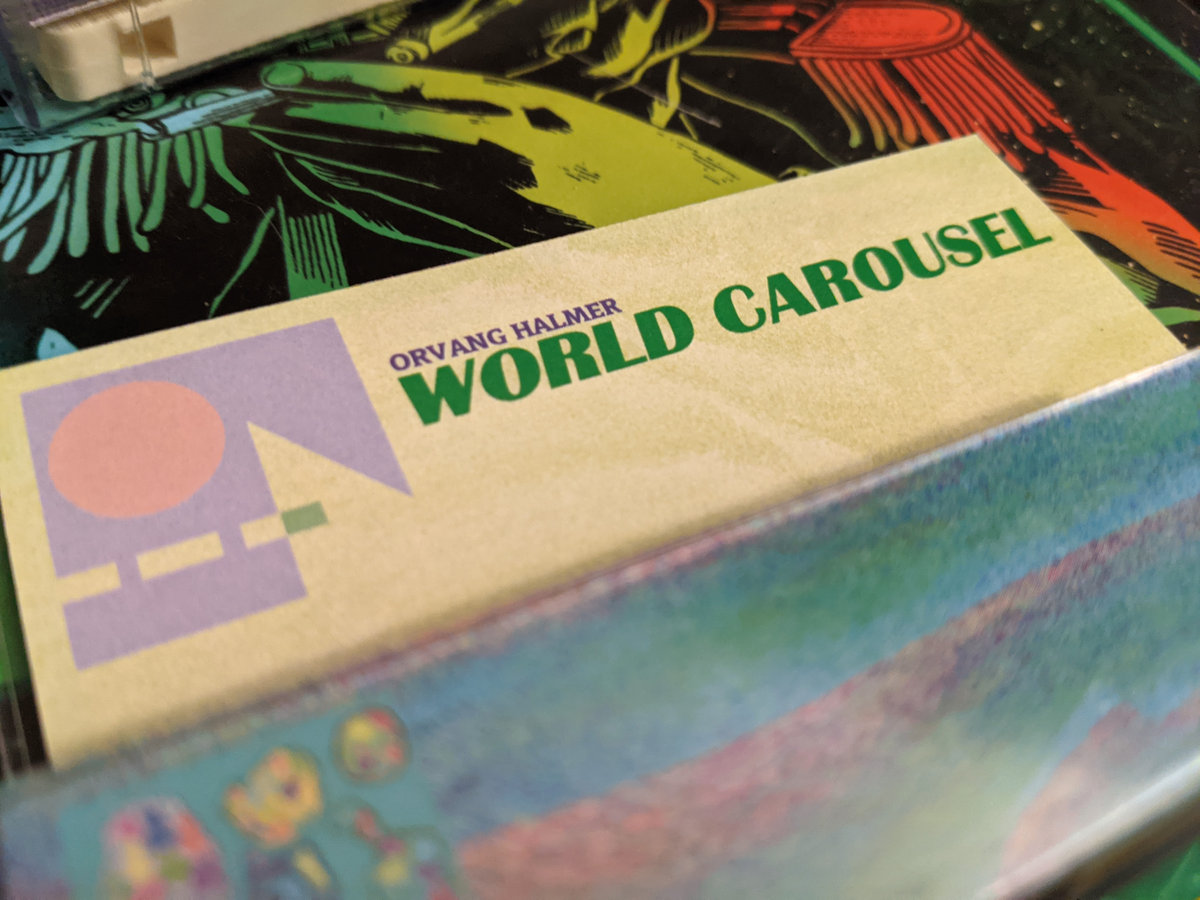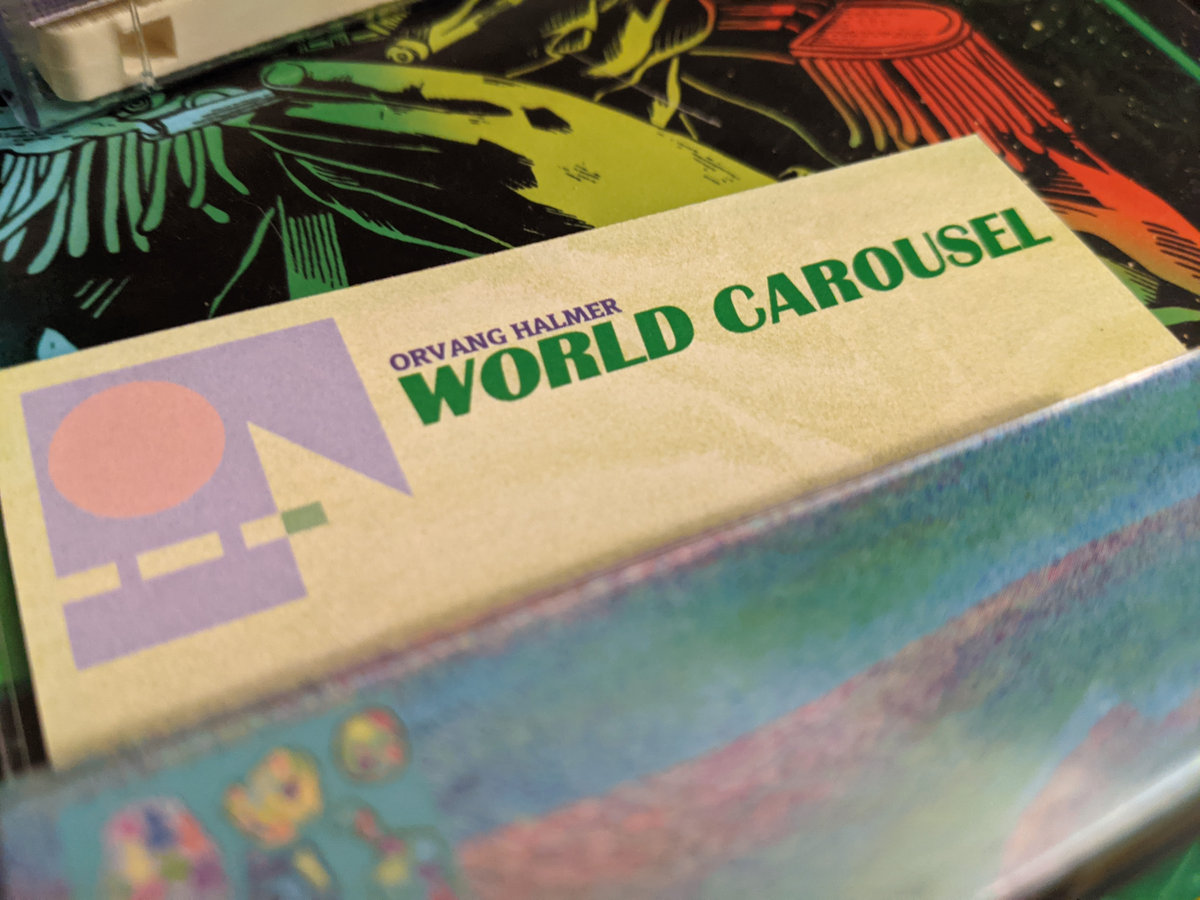Queer readings: Orvang Halmer’s latest album
Orvang Halmer’s new album, World Carousel, takes us back to the question, is there queer music?
As an artist — a queer artist — I’ve spent a great deal of time searching out the edges of what it means to be “queer” and an “artist.” I’ve wondered, “is my art always queer because I made it?” and, “is explicitly queer content necessary for the work to be queer?” These are impossible questions to answer, but Orvang Halmer’s new album, World Carousel, took me back to those questions.
The title track, which opens the album, is a sprawling meditative piece and aptly names. The song moves in circles, and every revolution reveals a revelation: sampled synth swells, bird songs, percussive hammering. Then, without warning or pause, Halmer drops us into “Loom Desert Lighting” which sonically describes a distant storm on a desert landscape moving in at night. It’s a disorienting move, but powerful.
Halmer has been releasing music on various indie labels for years (Not Not Fun Records, Zed Ping Records, and now queer owned and operated, Ingrown Records), and has done so under various pseudonyms. The whirling of the World Carousel represents the patterns and cycles of identity we move through. We have routines, the carousel goes around, but each rotation we are different and the world is different. Then it stops and we have to assess the world.

Halmer notes that this project has been eleven years in the making and World Carousel is the first of three installments. I can’t remember all the people I’ve been, all the flavors of queer, all the labels of identity I’ve picked up and put down over the last decade, but Halmer makes it clear that it was part of the ride.
If Halmer is anything, it is a musical magpie. Throughout the album he picks up lots of samples and repurposes them: he might turn a clip into a note, a note into an instrument, or catch you in a rhythm you didn’t expect to get caught up in. In “IMAX Waterfalls” he lets us breath and regain our footing as we make ourselves over one more time. Yet, once we get to “Salted Brainfoam v2”, it’s clear we are back on a queer sonic journey.
I was twenty-five minutes into the album before I realized it was purely instrumental. The label lists the album in thirteen genres, and rightfully so. Part of the album’s queerness, a clear reflection of the artist’s own reluctance to stick with one artistic game, is that it’s genre is “undefined” in the best possible way. “Gender” and “genre” share a root word, and World Carousel is more concerned with what happens when sonic bodies meet than naming the work. In fact, two of the songs note that they are the second versions and another is a longer mix by another artist; in this way Halmer reveals (and revels in) the creative process of change and exploration.
“Distant Fans for Burning Sands” opens like Peter Gabriel’s soundtrack work. As the penultimate song, the clangy beat suggests progress, that the long queer road and all those revolutions on the Carousel are leading us somewhere fantastic. Something in the song makes you ache with nostalgia and low distant mumbling voices conjure memories of all those loops on carousel horse. At five minutes into the twelve minute song, Halmer lets the song devolve into a loose No Wave informed jazz song — a pit stop before returning to the Gabrielesque song.

I’m other places Halmer summons the spirit of Athur Russell. Everywhere Russell’s meticulous attention to detail and commitment to experimental music is felt, but there are moments, especially in the chaotic sections of “Distant Fans for Burning Sands” and “Floral Coral”, where the power of wonder and discover come together and breaths newness into sound as Athur Russell was able to do.
The final track, a remix of the first, bears little resemblance to its original form — and damn! That’s queer! Without the use of lyrics or singing, Halmer takes the listener a queer journey of identity. As he picks up genre labels we pick up identity labels. As he samples sound we sample experiences. In the end, everyone leaves dancing and smiling.
Get the album here.






